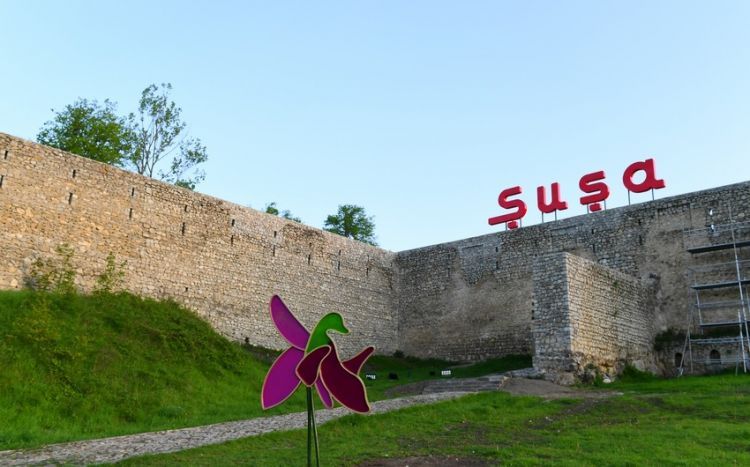Shusha: The Cultural Capital of Azerbaijan
Shusha (Şuşa), often referred to as the “Pearl of the Caucasus,” holds a special place in the history, culture, and identity of Azerbaijan. Nestled on a plateau in the Karabakh region, Shusha is celebrated for its rich cultural heritage, historical architecture, and deep-rooted artistic traditions. Officially recognized as the Cultural Capital of Azerbaijan, this ancient city stands as a symbol of resilience, creativity, and pride.
The Historical and Cultural Significance of Shusha
Founded in 1752 by Panah Ali Khan, the ruler of the Karabakh Khanate, Shusha quickly became a cultural and political hub in the region. Throughout the 18th and 19th centuries, the city developed into a vibrant center for music, literature, architecture, and craftsmanship. With museums, mosques, and schools, Shusha was known as the cradle of Azerbaijani arts.
The city’s strategic location, sitting atop cliffs and surrounded by scenic landscapes, made it not only a military stronghold but also a haven for poets, musicians, and artists. Shusha was often referred to as the “Conservatory of the Caucasus” due to its contributions to Azerbaijani classical music and mugham – a traditional genre of Azerbaijani folk music.
Shusha’s Contribution to Arts and Music
Shusha’s cultural legacy is closely linked with mugham, a form of musical expression that blends poetry, emotion, and rhythm. Some of Azerbaijan’s most prominent musicians and poets, such as Khurshidbanu Natavan, Uzeyir Hajibeyov, and Bulbul, have roots in Shusha.
- Uzeyir Hajibeyov, known as the father of Azerbaijani classical music, composed the first opera in the Muslim world, Leyli and Majnun.
- Bulbul, a legendary tenor, combined Western operatic techniques with traditional mugham, creating a unique style that remains influential today.
- Khurshidbanu Natavan, a renowned poetess and philanthropist, made significant contributions to literature and public welfare.
Shusha’s cultural vibrancy extends to carpet weaving as well. The city became known for producing exquisite carpets featuring intricate patterns and symbolic motifs, which have become part of Azerbaijan’s national identity.
The Revival of Shusha: A Symbol of Resilience
Shusha experienced challenges during the Nagorno-Karabakh conflict, when the city came under occupation for nearly 30 years. During this period, many historical sites and cultural treasures were damaged. However, after Azerbaijan regained control of Shusha in 2020, the government launched extensive efforts to revitalize and restore the city’s cultural landmarks.
The restoration of mosques, museums, and cultural centers symbolizes Shusha’s rebirth as a cultural epicenter. Among the notable restoration projects are:
- Yukhari Govhar Agha Mosque, a historic religious structure.
- Khurshidbanu Natavan’s house, an important cultural heritage site.
- The Shusha Carpet Museum, showcasing the city’s traditional carpet artistry.
Shusha: The Cultural Capital of Azerbaijan
In 2021, Shusha was officially declared the Cultural Capital of Azerbaijan by President Ilham Aliyev. This designation not only recognizes the city’s historical and artistic significance but also aims to position Shusha as a center for international cultural exchange.
The city has already begun to host various events and festivals, such as the Kharibulbul Music Festival and Vagif Poetry Days, celebrating both ancient and contemporary Azerbaijani culture. These events attract artists and visitors from around the world, solidifying Shusha’s status as a vibrant cultural hub.
The Future of Shusha as a Global Cultural Destination
Shusha’s transformation into a global cultural destination aligns with Azerbaijan’s broader efforts to promote tourism and preserve cultural heritage. The city’s stunning natural landscapes, combined with its historical monuments and artistic festivals, offer visitors a unique blend of culture, history, and nature.
In the coming years, Azerbaijan plans to:
- Expand infrastructure and tourism services in Shusha.
- Host international cultural festivals and conferences.
- Foster collaborations with artists and cultural institutions around the world.
These initiatives will not only restore Shusha’s former glory but also position it as a city of peace, unity, and creativity.
Conclusion
Shusha stands as a testament to the enduring spirit of Azerbaijani culture. From its poetic traditions and musical heritage to its revival as a cultural capital, the city reflects the resilience and creativity of its people. As Shusha reclaims its place on the global cultural map, it offers a powerful message: even in the face of adversity, art, heritage, and culture can flourish.
Whether you are drawn by its mugham music, its ancient architecture, or its breathtaking landscapes, Shusha promises an unforgettable journey into the heart of Azerbaijan’s cultural heritage.
